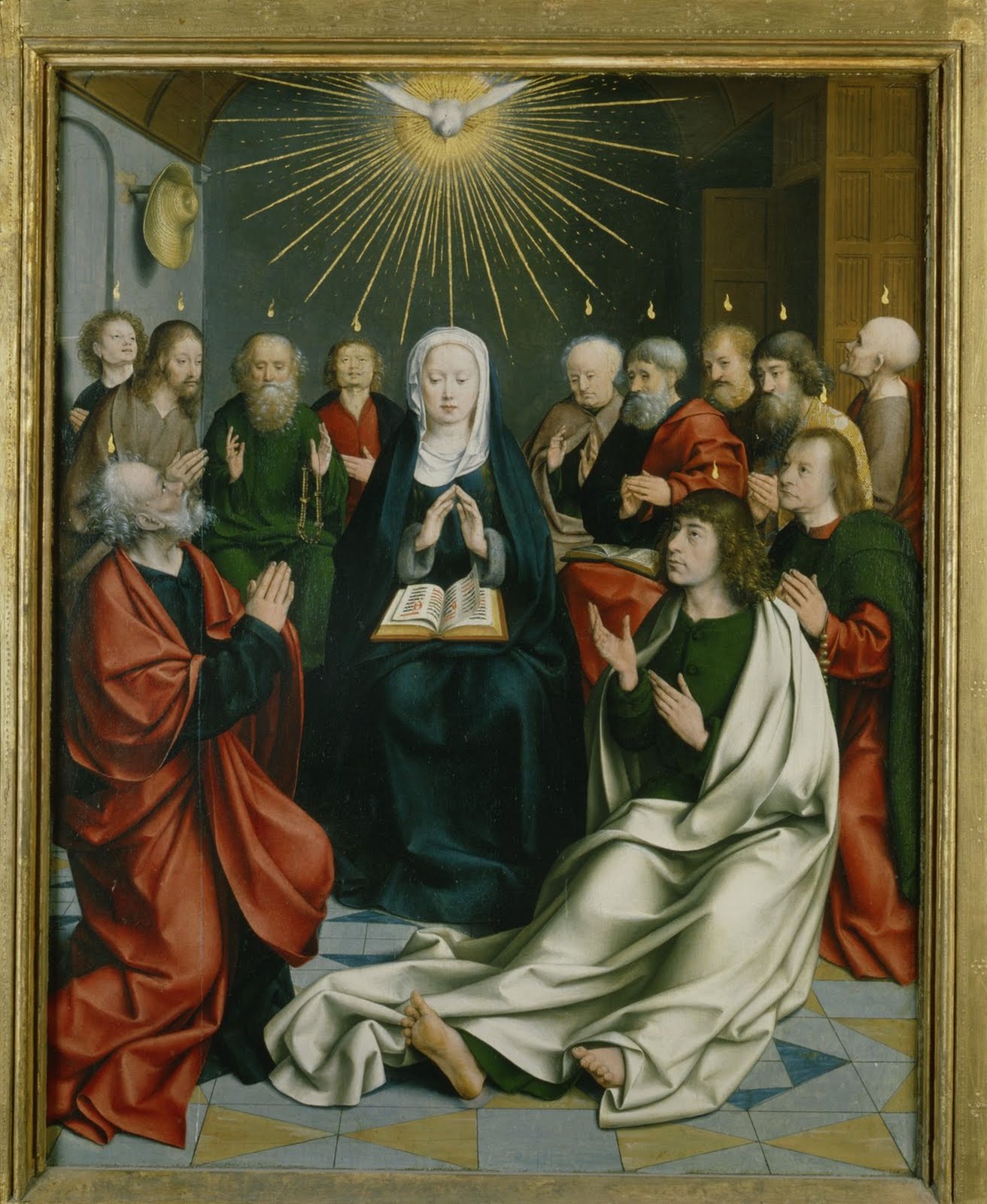
The lesson Mary, as Queen of Apostles, holds for Sarah Reinhard is one of acceptance and laughter.
She was so excited, she was nearly jumping out of her car seat.
“Are we there yet? Is THIS the beach?”
My four-year-old daughter was beside herself in anticipation of our trip to the modest beach near our home in Ohio. It’s not the kind of beach you’ll take a vacation to be near, but it has sand and water, and as far as she was concerned, it didn’t need anything else, except maybe a shovel and a bucket.
Our arrival was delayed by the realization that none of the dollar stores in the little touristy town had beach buckets.
We knew, when we left home, that we didn’t have any beach toys. We thought, with naive confidence, that surely there would be a selection at one of the stores near the beach.
We were wrong.
The best I could find, in addition to an inflatable beach ball, was a dump truck with a shovel. I was feeling like an idiot, calling myself all sorts of names in my head, when I got into the car after my trip into the second store.
“Honey, I’m sorry. They don’t have any more buckets or shovels.”
She didn’t start crying. She didn’t even flinch.
“That’s OK, Mommy.”
With those three words, I was forgiven. I was given permission to stop thinking about it. Without missing a beat, my four-year-old had accepted the situation and made the best from it.
The lesson, for me, was so clear and simple. It’s not about the bucket. It’s about the trip to the beach, the experience of family, the joy of sun and water and sand.
I think the Apostles probably felt that way much of the time around Jesus. There they were, worrying about seating arrangements and the company they were keeping, even as the larger lesson was there, invisible to them during their fretting.
By the time of Pentecost, I’m sure the Apostles were feeling transformed. There they were, in the Upper Room, where the Last Supper had taken place a short while before, with a few women, the Virgin Mary among them.
She’s there when the Holy Spirit comes. This is nothing new to her; she was exposed to the Holy Spirit in the most intimate way at the Annunciation. And yet, even though she doesn’t need the Holy Spirit, having already received Him, she’s there, in the Upper Room, praying and waiting with the Apostles.
It is for this reason that she’s called the Queen of Apostles, and it’s a title that has particular meaning for me. Here I see Mary, not as a mother, but as a friend and a mentor. She’s royalty, and yet she has time -- she makes time -- to help each of us. Maybe I need help with my rowdy toddler, with the extra attitude in my preteen, with my procrastination on a project. She’ll find me in the laundry room, on the phone, at the beach. When she finds me, she’ll do what she has been doing with the people around her for centuries: offering Jesus, plain and simple.
In her “Yes” at the Annunciation, she took on the role of a servant, even as she also agreed to be royalty. I wonder if that was something she thought about later. I wonder if she ever thought about what it implied. She probably didn’t need to; with her Jewish upbringing, she would have known what it meant to bear the Messiah.
By being our queen, she’s our leader. By being our mother, she’s our supporter, a servant who uses her influence to help us and guide us.

The early Church started calling Mary the Queen of Apostles because of her place of honor at Pentecost. The Church, through the ages, continued to venerate her, with a variety of devotions and apostolates inspired by her role as Queen of Apostles. The Apostles were given, by Jesus Himself, the dignity of teaching, the office of the priesthood, the responsibility of shepherding His Church. Mary, though, has greater dignity, by virtue of her “Yes” at the Annunciation and by way of the life she embraced, by grace of God Himself. The Apostles would have known this, and they would have deferred to Mary as Jesus taught them to do through His example.
A woman’s work is never done, and it’s no different for a queen. I wonder if, that day in the Upper Room, Mary found herself getting drinks and snacks. Would the men have thought of the implications of hours in a small room together? I imagine her smiling to herself, taking care of the things that needed doing, making sure that the Apostles stayed on track.
The Apostles preached with words, performing miracles. Mary, on the other hand, lived a miracle and proclaimed it with her ongoing “Yes.” If she found herself at the beach without a bucket, I think she would have just laughed and thought up something better. Maybe she would have pointed out the silliness to her Son, Who would have certainly have forgiven the oversight just as quickly as my four-year-old did.
Mary never stopped saying “Yes” to God, and I pray that, with her help, I won’t stop either. In her role as the Queen of Apostles, I’m reminded of my mission -- of the mission He left for all of us -- to be His witness to the end of the earth (Acts 1:8).
Sometimes, I’m not such a good example of Christianity. Sometimes, I forget that Jesus embraced sinners and ate with the lowly. Sometimes, I ignore that His mother was a young Jewish girl who chose to let Him make her extraordinary.
The lesson Mary, as Queen of Apostles, holds for me is one of acceptance and laughter: acceptance of my current state and laughter at the idiosyncrasies within it. She’s the one pointing out to me, later in the day, that we had a shovel from a few years ago, tucked into the sandbox at home, the entire time.
She’s royalty, and yet she has time -- she makes time -- to help each of us. #catholicmom
Copyright 2020 Sarah Reinhard
Images (top to bottom): Pixabay (2016); Jan Joest (1505-1508), Public Domain
About the Author

Sarah Reinhard
When she’s not chasing kids, chugging coffee, or juggling work, Sarah Reinhard’s usually trying to stay up read just one … more … chapter. She writes and works in the midst of rural farm life with little ones underfoot. She is part of the team for the award-winning Catholic Mom’s Prayer Companion, as well as the author of a number of books.


.png?width=1806&height=731&name=CatholicMom_hcfm_logo1_pos_871c_2728c%20(002).png)
Comments